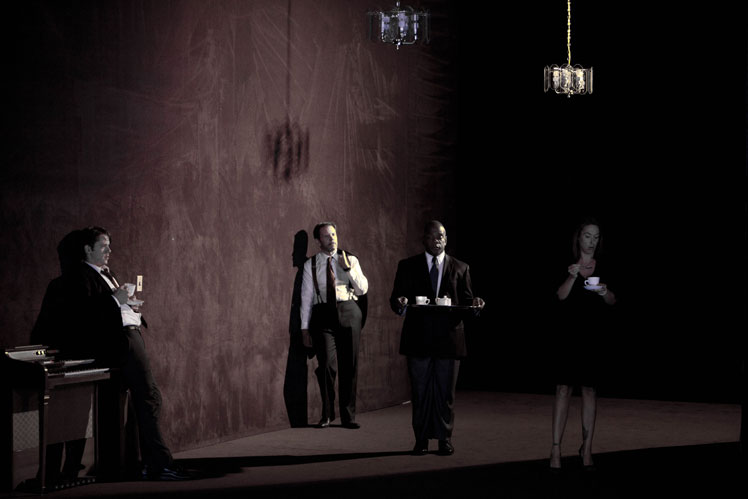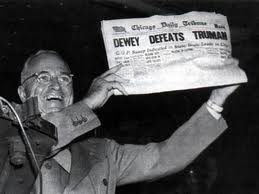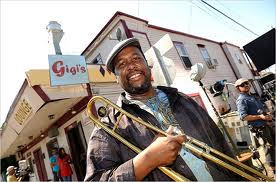Starting today, I’ll be filing two weekly drama columns for The Wall Street Journal. In addition to my regular Friday column, I’m going to be writing a second review for the paper’s new Greater New York section that will appear on the day after the opening of a Broadway or off-Broadway play. While this review will not be published in the paper’s national edition, it will be accessible to anyone who reads the Journal online.
I inaugurate the new regime in this morning’s Journal with a review of the New York Theatre Workshop’s revival of Lillian Hellman’s The Little Foxes, starring Elizabeth Marvel. Here’s an excerpt.
* * *
 Lillian Hellman lived a radical life, both politically and sexually, but when it came to her art, she was as traditional as a nun. She wrote “well-made” melodramas in which every corner of the plot is neatly tucked in, and her down-to-earth craftsmanship is one reason “The Little Foxes” was and is so popular. Not only did it run for a year on Broadway, but it has been revived regularly ever since that first production closed in 1940. I’ve seen “The Little Foxes” performed many times, and all of those stagings have been both naturalistic and true to the play’s setting, Alabama in 1900. Now, though, the avant-garde has finally come knocking on Hellman’s door: Ivo van Hove, a Flemish director who specializes in iconoclastic remixes of classics, has given us a high-concept “Little Foxes.”
Lillian Hellman lived a radical life, both politically and sexually, but when it came to her art, she was as traditional as a nun. She wrote “well-made” melodramas in which every corner of the plot is neatly tucked in, and her down-to-earth craftsmanship is one reason “The Little Foxes” was and is so popular. Not only did it run for a year on Broadway, but it has been revived regularly ever since that first production closed in 1940. I’ve seen “The Little Foxes” performed many times, and all of those stagings have been both naturalistic and true to the play’s setting, Alabama in 1900. Now, though, the avant-garde has finally come knocking on Hellman’s door: Ivo van Hove, a Flemish director who specializes in iconoclastic remixes of classics, has given us a high-concept “Little Foxes.”
Mr. van Hove’s approach to the play is easily explained: It’s a modern-dress staging performed without southern accents on a minimalist set, accompanied by minimalist music. If you see a lot of Shakespeare or go to the opera more than once a year, you’ll have seen plenty such productions, and you’ll more than likely be familiar with the rest of the tricks in Mr. van Hove’s bag. Jan Versweyveld’s set, which is presumably intended to suggest a seven-figure Manhattan duplex, contains no furniture except for a Hammond organ in the corner and a video screen on the wall that is used to project offstage scenes. Kevin Guyer’s costumes mostly run to shades of black. All the performers have clearly been instructed to act in as up-to-date a manner as possible…
You are, perhaps, getting the point? The plot of “The Little Foxes,” in which the hateful members of a family of exploitative nouveau-riche tradesmen claw one another’s eyes out over a business deal, is–brace yourself–as contemporary as today’s headlines! Thank you, Mr. van Hove, for trotting out all the clichés in the postmodern book in order to tell us something about “The Little Foxes” that anyone with a quarter of a brain in his head could figure out on his own…
The really sad part is that Mr. van Hove has put together a stageful of class-A actors to enact his simple-minded take on “The Little Foxes.” Elizabeth Marvel and Cristin Milioti, who play Regina, the villainess-in-chief, and her soon-to-be-disillusioned daughter Alexandra, turn in performances of attention-seizing intensity that are as revelatory as the production itself is trite….
* * *
Read the whole thing here.
TT: Snapshot
Ingrid Bergman plays the title role in Ibsen’s Hedda Gabler, directed by Alex Segal and starring Michael Redgrave, Ralph Richardson, and Trevor Howard. The production was taped by the BBC in 1962 and broadcast in the United States on CBS in 1963. This performing version was adapted by Phil Reisman from Eva Le Gallienne’s translation:
(This is the latest in a weekly series of arts-related videos that appear in this space each Wednesday.)
TT: Almanac
“Many a man fails as an original thinker simply because his memory is too good.”
Friedrich Nietzsche, Human All-too-Human
TT: Mistakes were made
I just seem to get busier and busier. I spent the weekend in Florida speaking at Rollins College, my new home-away-from-home, and tomorrow Mrs. T and I head for Boston to see the Huntington Theatre Company’s revival of Bus Stop. After that I’ll be flying out to Missouri to visit my family, followed by a quick trip to Chicago to take in a couple of shows.
 Once you have a sufficient number of balls in the air, I suspect that there’s no way to avoid dropping them from time to time, which explains (I hope!) how I let a certain number of tiny errors creep into the text of Pops: A Life of Louis Armstrong. Fortunately, I was able to fix all of them in the newly published paperback edition. A reader asked me last week if I could send her an errata list, so I’ve decided to post it here for the benefit of scholars, jazz buffs, and anyone who likes to see a critic admit to being wrong. Enjoy yourselves!
Once you have a sufficient number of balls in the air, I suspect that there’s no way to avoid dropping them from time to time, which explains (I hope!) how I let a certain number of tiny errors creep into the text of Pops: A Life of Louis Armstrong. Fortunately, I was able to fix all of them in the newly published paperback edition. A reader asked me last week if I could send her an errata list, so I’ve decided to post it here for the benefit of scholars, jazz buffs, and anyone who likes to see a critic admit to being wrong. Enjoy yourselves!
* * *
PAGE 13, LINE 32: insert “grand-opera” before “tenor,” making the phrase read “…a lordly grand-opera tenor.”
PAGE 37, PHOTO CAPTION: change “The inscription is in…” to “The inscription at the top is in…”
PAGE 48, LINE 1: change “never” to “rarely.”
PAGE 124, LINE 13: change “…mob-run nightclub located in the same…” to “…mob-run nightclub which in 1937 would move to the same…”
PAGE 152, LINE 35: change “…inauspicious film debut…” to “…inauspicious debut…”
PAGE 158, LINES 2-3: change “…that the drummer’s boss, who led the band…” to “…that Abe Lyman, who had led the band…”
PAGE 158, LINE 21: change “He continued to play there…” to “He played there…”
PAGE 158, LINE 22: change “…when he went on trial before Judge…” to “when he pleaded guilty and was sentenced by Judge…”
PAGE 158, LINE 28: cut “jail.”
PAGE 158, LINE 29: change “remainder” to “rest.”
PAGE 168, PHOTO CAPTION: cut “1931.”
PAGE 172, LINE 28: change “…Buddy Bolden died in New Orleans and three months after…” to “…Buddy Bolden died and three months after…” (i.e., cut “in New Orleans”).
PAGE 323, LINE 33: change “…Sidney Bechet, who received the same honor, wrote…” to “…Sidney Bechet, who would have liked nothing better than to receive the same honor, wrote…” (i.e., change “received” to “would have liked nothing better than to receive”).
PAGE 174, LINE 15: cut the comma inside the close-quote mark after “National Emblem March.”
PAGE 203, LINE 20: cut the comma after “America Dances!”
PAGE 214, LINE 30: cut “fifty cents, then,” making the phrase read “…sold for thirty-five.”
PAGE 216, LINE 5: change “sedate-sounding” to “placid-sounding.”
PAGE 313, LINE 18: change “Charles Walter” to “Charles Walters.”
PAGE 340, LINE 10: change “…is too earnest…” to “…is sometimes too earnest…”
PAGE 340, LINE 29: set “Sullivan” in roman, not italics.
PAGE 372, LINE 31: change “Phoebe Jacobs” to “the trumpeter.”
PAGE 382, LINE 9: cut “and.” LINE 11: after “grew,” change the period to a semicolon, then insert the following: “…and Walter Darby Bannard, who first suggested the title.”
PAGE 406, ADD TO SOURCE LIST OF BOOKS IN CHAPTER 4: “Jonson, Bix.”
PAGE 407, SUB ENTIRE LAST NOTE AS FOLLOWS: “He was a cute little boy”: Sudhalter, 39. See also Satchmo, 209, SP, 26, and Dodds, 24). Beiderbecke told members of his family that he heard Fate Marable’s band in Louisiana, Mo., in the summer of 1921, but he did not mention LA, and the two men may well have met earlier (Jonson, 693).
PAGE 413, LINE 37: change “Club Apex” to “Apex Nite Club” (“Nite,” not “Night,” is correct).
PAGE 414, LINE 20, SUB ENTIRE NOTE AS FOLLOWS: “Abe Lyman, Vic’s leader”: Berton, 389. Lyman actually led the Cocoanut Grove band from 1921 to 1925. In 1930 its leader was Gus Arnheim, who had been Lyman’s pianist. Berton was sentenced to ninety nights in the county jail, from which he was released each morning so that he could fulfill his professional commitments. Court records show that Berton and LA were not tried together and that LA’s case was not handled similarly.
PAGE 436, LINE 32: change “Atlanta University” to “Alabama University.”
PAGE 474, LEG 2: change index entry for “Charles Walter” to “Charles Walters.”
PAGE 445, ADD THIS ENTRY TO BIBLIOGRAPHY: Jonson, Rich J., with Jim Arpy and Gerri Bowers. Bix: The Davenport Album. Barnegat, NJ: Razor Edge Press, 2009.
TT: Almanac
“Everyone complains of his lack of memory but no one of his lack of judgment.”
La Rochefoucauld, Maxims
TT: Inside and out
 Nicholas Lemann, a native of New Orleans, writing apropos of David Simon’s Treme in the New York Review of Books:
Nicholas Lemann, a native of New Orleans, writing apropos of David Simon’s Treme in the New York Review of Books:
New Orleans is at once a welcoming and an inaccessible city. As a tourist town it has no choice but to be friendly to visitors. Its charms, which are abundantly on display in Treme–not just the music but the food, the domestic architecture, and the street culture–are matters of public expression. On the other hand New Orleans is an old, provincial city, whose distinctiveness comes substantially from its being cut off from many of the main currents of American culture. It’s an easy city to come from and a hard city to move to; full membership can take a generation or two to achieve. So while New Orleans necessarily and relentlessly entertains its visitors, the better one gets to know it the more often one is reminded that one doesn’t, really. A certain kind of New Orleanian gets very invested in becoming a walking encyclopedia on everything–the real stuff, not the tourist stuff–about the city, and a certain kind of newcomer gets very invested in establishing New Orleans bona fides by learning everything that the semiprofessional New Orleans insiders know.
Me, writing in Pops: A Life of Louis Armstrong about a city that I’d never seen when I penned the following paragraph five years ago:
To the northerner New Orleans is another country, seductive and disorienting, a steamy, shabby paradise of spicy cooking, wrought-iron balconies, and streets called Desire and Elysian Fields, a place where the signs advertise such mysterious commodities as po-boys and muffuletta and no one is buried under ground. We’ll take the boat to the land of dreams, the pilgrim hears in his mind’s ear as he prowls the French Quarter, pushing through the hordes of tipsy visitors and wondering whether the land of his dreams still exists–if it ever did. Rarely does he linger long enough to pierce the veneer of local color with which the natives shield themselves from the tourist trade. At the end of his stay he knows no more than when he came, and goes back home to puzzle out all that he has seen and smelled and tasted. A.J. Liebling, a well-traveled visitor from up north, saw New Orleans as a Mediterranean port transplanted to the Gulf of Mexico, a town of civilized pleasures whose settlers “carried with them a culture that had ripened properly, on the tree.” He knew what he was seeing, but Walker Percy, who lived and died there, cast a cooler eye on the same sights: “The ironwork on the balconies sags like rotten lace….Through deep sweating carriageways one catches glimpses of courtyards gone to jungle.” Unlike Liebling, he caught the smell of decay.
Never underestimate the power of research, Mr. Lemann.
TT: Just because
Noël Coward sings “Nina (From Argentina)” on Together With Music, telecast on CBS in 1955:
TT: Almanac
“You can’t order remembrance out of a man’s mind.”
William Thackeray, The Virginians
